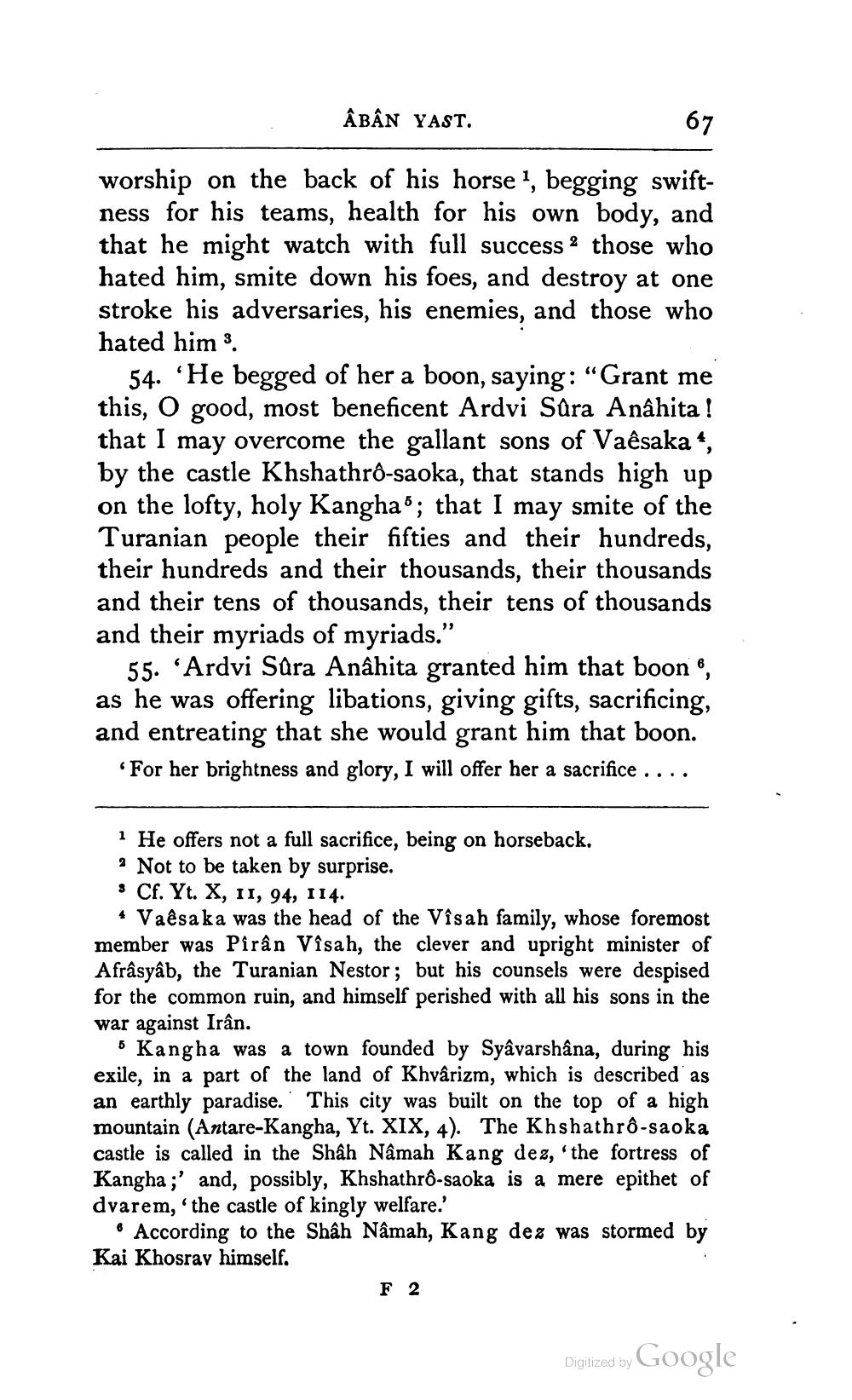________________
ÂBÂN YAST.
worship on the back of his horse ?, begging swiftness for his teams, health for his own body, and that he might watch with full success those who hated him, smite down his foes, and destroy at one stroke his adversaries, his enemies, and those who hated him
54. 'He begged of her a boon, saying: “Grant me this, O good, most beneficent Ardvi Sûra Anâhita ! that I may overcome the gallant sons of Vaêsaka“, by the castle Khshathrô-saoka, that stands high up on the lofty, holy Kanghao; that I may smite of the Turanian people their fifties and their hundreds, their hundreds and their thousands, their thousands and their tens of thousands, their tens of thousands and their myriads of myriads."
55. 'Ardvi Sara Anâhita granted him that boon, as he was offering libations, giving gifts, sacrificing, and entreating that she would grant him that boon.
For her brightness and glory, I will offer her a sacrifice ....
1 He offers not a full sacrifice, being on horseback. 9 Not to be taken by surprise. s Cf. Yt. X, 11, 94, 114.
4 Vaesaka was the head of the Visah family, whose foremost member was Pirân Visah, the clever and upright minister of A frâsyâb, the Turanian Nestor ; but his counsels were despised for the common ruin, and himself perished with all his sons in the war against Irân.
5 Kangha was a town founded by Syâvarshana, during his exile, in a part of the land of Khvârizm, which is described as an earthly paradise.' This city was built on the top of a high mountain (Antare-Kangha, Yt. XIX, 4). The Khshathrô-saoka castle is called in the Shâh Nâmah Kang dez, the fortress of Kangha;' and, possibly, Khshathrô-saoka is a mere epithet of dvarem, the castle of kingly welfare.'
According to the Shâh Nâmah, Kang dez was stormed by Kai Khosrav himself.
F 2
Digitized by Google




